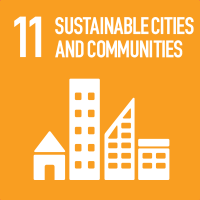Studying at the University of Verona
Here you can find information on the organisational aspects of the Programme, lecture timetables, learning activities and useful contact details for your time at the University, from enrolment to graduation.
Study Plan
This information is intended exclusively for students already enrolled in this course.If you are a new student interested in enrolling, you can find information about the course of study on the course page:
Laurea magistrale in Governance dell'emergenza - Enrollment from 2025/2026The Study Plan includes all modules, teaching and learning activities that each student will need to undertake during their time at the University.
Please select your Study Plan based on your enrollment year.
1° Year
| Modules | Credits | TAF | SSD |
|---|
1 module between the following1 module between the following1 module between the following2° Year activated in the A.Y. 2024/2025
| Modules | Credits | TAF | SSD |
|---|
1 module between the following1 module between the following1 module between the following| Modules | Credits | TAF | SSD |
|---|
1 module between the following1 module between the following1 module between the following| Modules | Credits | TAF | SSD |
|---|
1 module between the following1 module between the following1 module between the following| Modules | Credits | TAF | SSD |
|---|
Legend | Type of training activity (TTA)
TAF (Type of Educational Activity) All courses and activities are classified into different types of educational activities, indicated by a letter.
Public economics and public procurement (2023/2024)
Teaching code
4S003630
Teacher
Coordinator
Credits
6
Language
Italian
Scientific Disciplinary Sector (SSD)
SECS-P/03 - PUBLIC ECONOMICS
Period
2° periodo lezioni - GEM (aprile/maggio), 2° periodo lezioni - GEM (febbraio/marzo)
Courses Single
Authorized
Learning objectives
The course aims to enable students to understand the main reasons that might justify, from an economic point of view, State’s intervention in cases of emergency. It also analyses the different types of public intervention implemented by developed countries according to the emergencies’ typology and to the various stages of an emergency. Emphasis will be placed on the importance of policy evaluation and sustainable ex ante and ex post public policies. The course also aims to develop quantitative skills, databases' knowledge and “problem solving” capability through the analysis of case studies.
Prerequisites and basic notions
No prior knowledge is required. Basic concepts related to Public Economics will be covered during the course.
Program
1. Definition and types of emergency and economic evaluation of damage.
2. The theoretical reasons for public intervention in emergencies.
3. The areas and forms of public intervention in emergency situations.
4. The information system for emergency management and analysis of "Distaster Risk" in the Italian context.
5. The contribution of the local dimension to preventing and managing emergency situations in Italy.
6. Innovative and sustainable approaches for emergency governance.
7. The analysis of "case studies".
Teaching material and detailed programme will be made available on the University Moodle page dedicated to the course.
Didactic methods
Teaching methods consist of lectures, analysis and interpretation of empirical work, focused classroom discussions and possible testimonies on specific topics by external speakers.
Group work may also be carried out in order to deepen the topics covered in the course.
Further information on the course organisation will be provided on the course Moodle page.
Learning assessment procedures
The examination modalities are identical for attending, non-attending and Erasmus students.
The examination consists of an oral test with open questions on theoretical, empirical and practical topics covered during the course.
Evaluation criteria
The examination is designed to ascertain the knowledge acquired and to assess the skills of analysis and critical reflection. The ability to apply what has been learnt in concrete examples is taken into account in the assessment. Technical language of the discipline will also be assessed.
Criteria for the composition of the final grade
The final grade is awarded on the basis of the assessment given in the oral test.
In the case of group work, which is only activated if certain conditions described during the first lesson are met, the final grade will be calculated as a weighted average.
Exam language
Italiano




